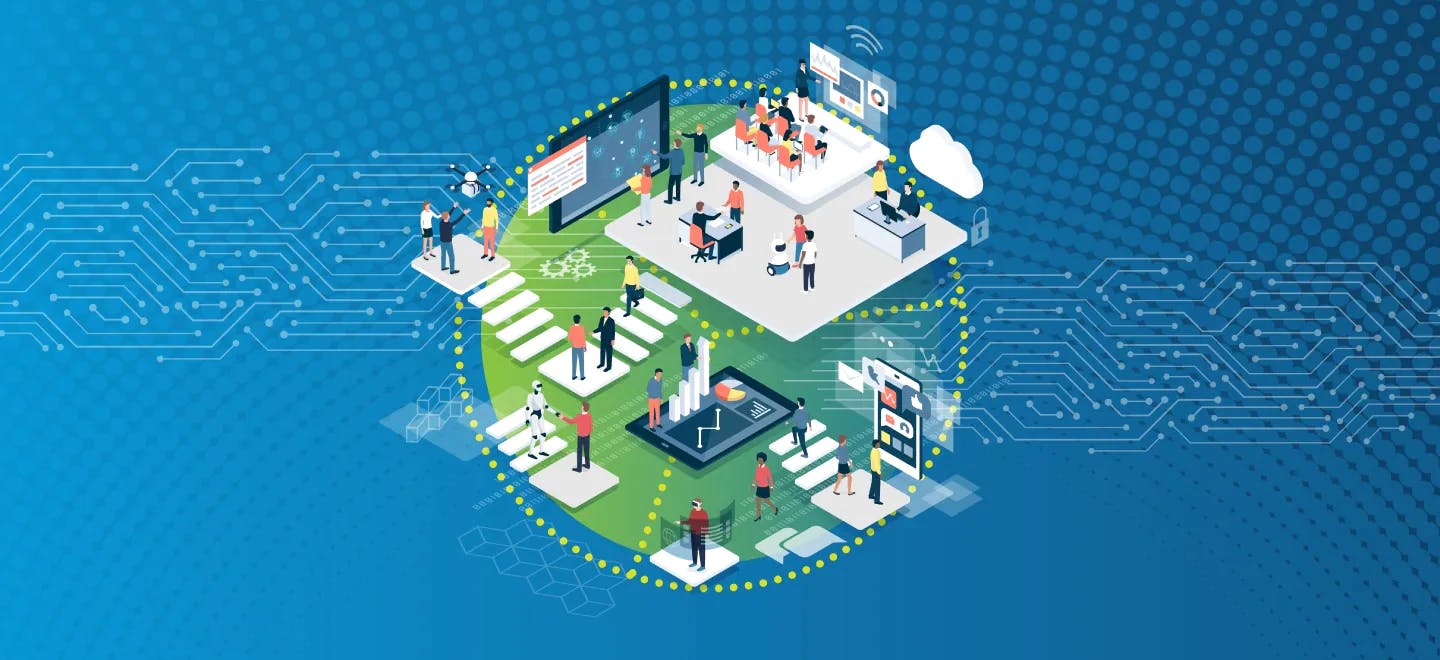Embracing the Future: Exploring Exciting Technology Trends

In today's rapidly evolving digital landscape, staying ahead of the curve is crucial for businesses to thrive. Understanding and leveraging the latest technology trends can give organizations a competitive edge, drive innovation, and unlock new opportunities. In this blog post, we will delve into some of the most exciting technology trends that are shaping the future across industries.
Artificial Intelligence (AI) and Machine Learning (ML): AI and ML are revolutionizing various sectors by enabling machines to learn, analyze data, and make intelligent decisions. From chatbots and virtual assistants to predictive analytics and personalized recommendations, AI and ML are transforming customer experiences, optimizing operations, and driving data-driven insights.
Internet of Things (IoT)
The IoT ecosystem continues to expand, connecting devices, sensors, and everyday objects to the internet. This trend offers immense potential for businesses to collect and analyze real-time data, automate processes, and create innovative services. IoT applications range from smart homes and wearable devices to industrial automation and smart cities.
Cloud Computing
Cloud computing has become the backbone of modern businesses, offering scalable and flexible infrastructure, storage, and services. It enables organizations to access resources on-demand, reduce costs, and increase efficiency. Hybrid and multi-cloud approaches provide even greater flexibility and resilience.
Edge Computing
Edge computing brings processing and data storage closer to the source of data generation, reducing latency and enabling real-time analytics. It is crucial for applications that require immediate responses, such as autonomous vehicles, smart factories, and remote monitoring. Edge computing also enhances data privacy and security.
Cybersecurity and Data Privacy
With the rise of digital threats, cybersecurity and data privacy have become paramount concerns. As technology evolves, so do cyber threats. Organizations must invest in robust cybersecurity measures, including encryption, access controls, and threat intelligence, to safeguard sensitive data and protect against cyber-attacks.
Augmented Reality (AR) and Virtual Reality (VR)
AR and VR technologies are transforming industries such as gaming, entertainment, healthcare, and education. They provide immersive experiences, training simulations, and visualization capabilities. From virtual meetings and interactive product demonstrations to medical training and virtual tours, AR and VR open up new possibilities.
Blockchain Technology
Blockchain offers secure and transparent transactions through decentralized ledgers. It has disrupted sectors like finance, supply chain management, and healthcare. Blockchain provides traceability, eliminates intermediaries, and enhances trust. Smart contracts and tokenization are further expanding its applications.
Quantum Computing
Quantum computing has the potential to revolutionize computational power and solve complex problems exponentially faster than traditional computers. It holds promise for industries like drug discovery, optimization, cryptography, and financial modeling. Though still in its early stages, quantum computing is an exciting technology to watch.
Conclusion
Embracing technology trends is essential for businesses to remain agile, innovative, and competitive in today's dynamic landscape. AI, IoT, cloud computing, and other trends discussed in this blog are reshaping industries and creating new possibilities. By understanding and harnessing these technologies, organizations can drive digital transformation, enhance customer experiences, improve operational efficiency, and pave the way for a successful future. Stay curious, embrace change, and leverage the power of technology to propel your business forward.